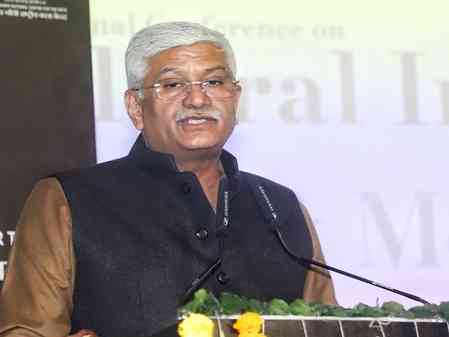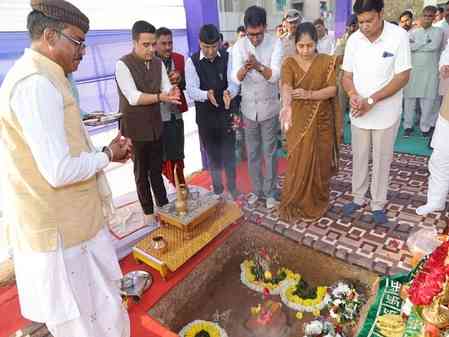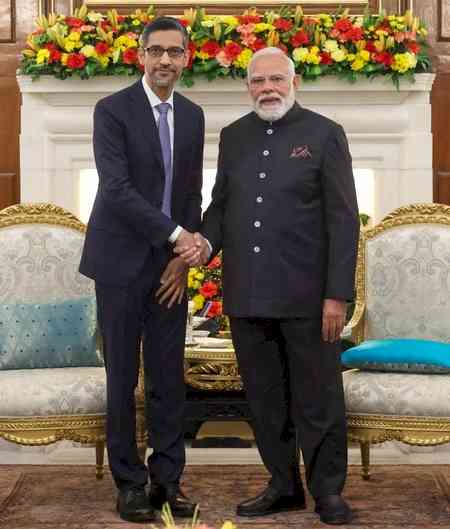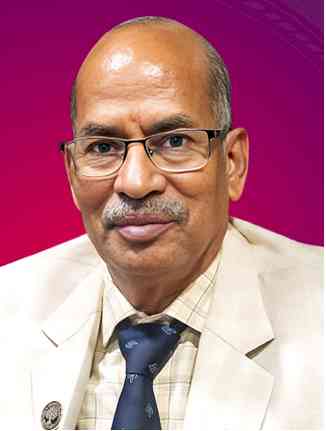This woman IAS officer first fights gender bias, now opts tough posting in Himachal
Where the going gets tough, this energetic woman IAS officer of Himachal Pradesh gets going by breaking into a male bastion.

VISHAL GULATI
Shimla, April 25 (IANS) Where the going gets tough, this energetic woman IAS officer of Himachal Pradesh gets going by breaking into a male bastion.
A 2019-batch IAS officer, Ritika Jindal in her second posting has been opting for a place where even her male counterparts loath spending time.
Jindal, who fought gender discrimination in a goddess temple of Himachal Pradesh's Solan town during her trainee posting as tehsildar, has opted the landlocked Pangi Valley in Chamba district as the Resident Commissioner.
She's the first woman officer to sit in Pangi.
Earlier, a woman officer was posted in Pangi but she operated from district headquarters Chamba rather than holding the office in Killar, the headquarters located at a height of 14,500 feet in the Pir-Panjal range of Himalayas.
Bordering Jammu and Kashmir, Pangi was once known as the 'Kaala Pani' of the Himachal Pradesh owing to the dangerous roads and remote inaccessible hamlets.
Not accessible by road throughout the year, the picturesque Pangi Valley remains cut off from the world for more than six months a year due to heavy snowfall.
"I have never been to Pangi and even to Chamba district. The Department of Personnel has enquired from me about my next posting in Pangi and I spontaneously replied that I am willing to work there," Ritika told IANS.
"I am excited to work there. I have heard about the tough topography and harsh weather conditions of Pangi. Not an issue, will adjust there as per weather conditions. We are officers of all-India services and if the government wants to use my services in remote corners of Nagaland or Andaman and Nicobar Islands, we should not say no and go and work there."
Ritika, who was initially denied participation in a 'havan' in Shoolini temple in October 2020 based on her gender, told IANS that she is very enthusiastic, in fact eager, to work in Pangi.
In Shoolini temple, there is an age-old parochial tradition that only the men can attend the 'havan'.
She also taught lessons of equality to priests by participating in the 'havan'.
"I will adjust myself in Pangi. This will be my second posting after serving in Mandi as an SDM (Subdivisional Magistrate) close to two years," she said.
Unfazed by the harsh weather conditions, an exited Ritika, who is born and brought up in Punjab's Moga town, said: "Of course, first of all my priority will be to get myself acclimatize after reaching there in two-three days. I will adjust myself there."
The picturesque Pangi Valley is populated mainly by Gaddis, who are largely pastorals and grow barley, potatoes, and peas, besides off-season vegetables and exotic flowers.
The climatic conditions of the district are harsh as much of the land forms part of a cold desert where the mercury drops below minus 20 degrees Celsius during winters.
There are several hamlets where locals have to trek more than 10 km to reach the health centre.
Health officials say their staff has to traverse at least two-three days on foot from the nearest roadheads to the remotest hamlet for the vaccination programmes.
During winter, people of the Pangi Valley have to travel through Jammu to reach district headquarters after covering a distance of around 700 km.
Otherwise, the Sacch Pass is the shortest route linking district headquarters of Chamba with the Pangi Valley.
It usually closes for traffic in October after it starts getting frequent spells of snowfall and reopens in late April.
In case of medical emergency, the state government deploys helicopter services.
(Vishal Gulati can be contacted at [email protected])



 IANS
IANS 










